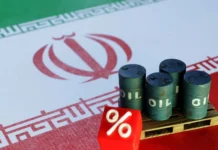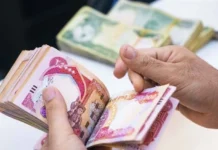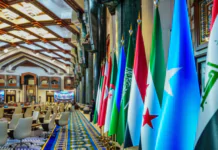As accusations of power monopolization, incomplete political reforms, and contentious agreements with the US and Kurdistan Regional Government fuel growing discontent within his own ranks, Iraq’s Prime Minister Mohammed Shia al-Sudani is facing increasing internal pressure from factions within the powerful Shiite Coordination Framework.
How Mohammed Shia al-Sudani Ascended to Power Mohammed Shia al-Sudani was chosen to lead a new government on October 13, 2022, following months of political impasse brought on by internal disagreements among major factions. After contested parliamentary elections for a year, his appointment ended the crisis. He became Iraq’s prime minister when his cabinet was approved by the parliament later that month.
Al-Sudani, 52, brought experience from his previous positions as Iraq’s minister of labor and social affairs and human rights. His rise to power, however, was contentious. The group led by Muqtada al-Sadr, a major rival in Iraq’s Shia political landscape, opposed his nomination. Al-Sadr’s group boycotted the public authority, leaving a huge gathering outside the political system.
Al-Sudani’s help came from the Alliance of the State Organization, including the persuasive Coordination Structure — a coalition of favorable to Iran Shia groups controlling 138 out of 329 parliamentary seats. The alliance additionally included Sunni and Kurdish gatherings, for example, the gatherings drove by Parliament Speaker Mohammed al-Halbousi and the two principal Kurdish groups, the Kurdistan Progressive faction and the Enthusiastic Association of Kurdistan.
Al-Sudani’s nomination by the Iran-backed Coordination Framework was significant in Iraq’s post-2003 political system, which emphasizes power sharing across ethnic and sectarian lines. As part of a strategy to pressure rivals into forming a government, the withdrawal of al-Sadr’s 73 lawmakers gave this bloc control of parliament. The Coordination Framework was able to consolidate control after Al-Sadr left.
Al-Sudani’s appointment sparked public outcry despite his appointment. His appointment, which was made public on July 25, sparked widespread protests led by al-Sadr’s backers, who stormed the Green Zone in Baghdad and demanded that he resign. Al-Sudani proceeded to form his government despite the uprising.
Al-Sudani’s political career has been shaped by Iraq’s turbulent history. He was born in 1970 in southern Iraq. Saddam Hussein’s system executed his dad for binds to the Iran-supported Islamic Dawa Party. Al-Sudani stayed in Iraq during the Shia uprisings of 1991, when many others fled.
After the 2003 US-drove attack that overturned Hussein, al-Sudani held a few government jobs, remembering city hall leader of Al-Amarah for 2004 and legislative head of Maysan. He was human rights minister from 2010 to 2014 and labor and social affairs minister from 2014 to 2018 under Nouri al-Maliki and Haider al-Abadi’s administrations, respectively.
Al-Sudani quit the Dawa Party in 2020 amid widespread protests against the government and allegations of corruption. Some analysts suggested that he probably made this choice to distance himself from the problems within the party because he wanted to run for higher office.
Al-Sudani and then-caretaker Prime Minister Mustafa al-Kadhimi were considered to succeed Adil Abdul-Mahdi when he resigned in 2019 following deadly protests. Be that as it may, compelled to name somebody adequate to dissidents, al-Sudani pulled out his appointment.
Al-Sudani was in charge of the Euphrates Movement by 2022, which won three seats in parliament in the previous election. His candidacy for prime minister was bolstered by his affiliation with the Shia Coordination Framework, which is currently the largest bloc.
On August 29, 2022, Al-Sadr pulled out of politics, escalating the political calamity. At least 30 people were killed in violent clashes that broke out when his supporters again stormed parliament. A lot of people were angry about corruption, the ruling elite, and foreign influence in Iraq, which led to these protests. Al-Sudani and figures like Nouri al-Maliki were strongly opposed by demonstrators, who accused them of corruption and poor governance.
Al-Sudani continues to manage Iraq’s complex political environment, but his handling of critical issues, such as unfinished political reforms, allegations of power concentration, and agreements with the US and the Kurdistan Regional Government, is now drawing opposition from within the Coordination Framework.
State of Law Coalition Leader Rahman al-Jazaeri told Shafaq News, “Recent meetings have revealed that part of the Coordination Framework, including State of Law, is dissatisfied with al-Sudani’s government, particularly over his failure to deliver on the political agreement and his lack of seriousness in completing the project endorsed by the Framework.” Power Monopoly Claims
Al-Jazaeri also criticized al-Sudani’s leadership, saying that he “monopolized” power by putting people close to his tribe in key positions, like when Mohammed Juhi was made prime minister. The Framework’s approach to premiership leadership changes is impacted by this, “he stated.
Additionally, he criticized al-Sudani’s “unilateral” decisions regarding the Kurdistan Region, particularly his decision to distribute funds without holding the regional government accountable for late payments to Iraq’s Ministry of Finance. Al-Jazaeri continued, “These actions were taken without consulting the Framework.”
The senior official from the State of Law mentioned that some members of the Framework are also unhappy with al-Sudani’s agreements with the United States. These agreements include decisions that affect Iraq’s economic situation, like cutting the salaries of members of the Popular Mobilization Forces (PMF) and closing some banks. Al-Jazaeri stated that the recent protests and al-Sudani’s failure to expel US forces from Iraq have further fueled Framework opposition.
However, al-Jazaeri acknowledged that another Coordination Framework faction, which includes the group led by Labor Minister Ahmed al-Asadi, Asa’ib Ahl al-Haq, led by Qais al-Khazali, and allied groups, supports al-Sudani’s second term. He also speculated that al-Sudani’s government might be supported by the Victory Alliance (Al-Nasr), led by former Prime Minister Haider al-Abadi.
Al-Jazaeri stated, “There is a split within the Framework between those who support him to continue his term and those who oppose his continued leadership.” [Citation needed] He suggested that non-aligned political parties might join these protesters and warned that opposition factions might organize protests similar to the massive “Tishreen” demonstrations that took place in 2019.
Al-Jazaeri anticipated that further resistance could prompt “1,000,000 man walk,” like the fights that constrained the acquiescence of previous State leader Adel Abdul Mahdi.
Al-Sudani’s Nomination and Growing Popularity According to political analyst Mujasha al-Tamimi, al-Sudani’s nomination for premiership by the Coordination Framework was initially motivated by the need to manage the conflict between the Framework and the Sadrist Movement.
Al-Tamimi stated, “The Coordination Framework reluctantly nominated al-Sudani, as he was the last political figure under their umbrella.” In order to avoid inciting the Sadrist Movement, other candidates were ruled out.”
Al-Tamimi made sense of that al-Sudani was viewed as an unbiased figure who could connect contrasts inside the Structure and try not to threaten the Sadrist Development or the Tishreen dissenters. Al-Tamimi went on to say that al-Sudani’s rising popularity has “a source of tension within the Framework, particularly as his political rise could reduce their parliamentary influence prior to future elections.”
“The developing notoriety of al-Sudani may adversely influence the parliamentary strength of the Coordination Structure,” al-Tamimi said, cautioning that this could prompt inside divisions if al-Sudani takes part freely in the following races.
Political advisor to al-Sudani Sabhan al-Mulla Ji’ad attributed the opposition to early party competition ahead of the next elections. According to what he told Shafaq News, some factions are concerned that al-Sudani might form a new political bloc that crosses traditional sectarian lines.
Ji’ad said, “These objections are probably fueled by concerns that al-Sudani may lead a cross-sectarian bloc in the next elections, given his growing popularity,” noting that a lot of the criticism comes from personal and political interests.
Ji’ad excused cases of al-Sudani’s underperformance, featuring his administration’s record on supervising activities and checking monetary uses. ” Since 2003, Al-Sudani’s government has performed the best, he stated.
Ji’ad downplayed the Coordination Framework’s internal disagreements, describing them as “natural political differences that could be resolved through negotiation.” There are no significant cracks inside the partnership,” he finished up.





